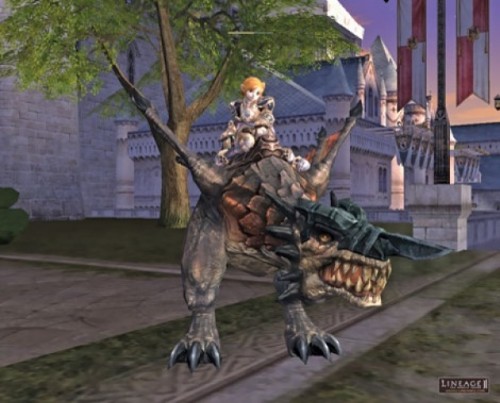Addicted to Video Games
What do video game makers owe you for using their product?
By Charlie DeitchI know this because Smallwood has filed a federal lawsuit against NCSoft, the maker of the game Lineage II. Apparently, Smallwood wasn’t able to get outside and enjoy his state’s sunshine, clear blue surf and ample pineapple because he was indoors playing—wait for it—20,000 hours of the role-playing game between 2004 and 2009. If you just read that last sentence and thought, “20,000 hours—what a lightweight,” you may have a future claim, too.
According to an article on AOL Website Walletpop, the America Medical Association refused in 2007 to categorize the overplaying of videogames as an addiction. But that hasn’t stopped Smallwood and his creative attorney. Wired.com reported that Smallwood’s lawsuit alleges that the company “acted negligently in failing to warn or instruct or adequately warn or instruct plaintiff and other players of Lineage II of its dangerous and defective characteristics, and of the safe and proper method of using the game.”
I actually beg to differ, Mr. Smallwood. If you’re playing an average of 4,000 hours per year (roughly six months), then you’re using the product exactly as the company intended. If they wanted you to go outside and have a life, then the South Korean company would be importing soccer balls or tandem bikes.
For nearly a year, NCSoft has been trying to get the lawsuit dismissed, to no avail. On Aug. 4, U.S. District Judge Alan Kay ruled that Smallwood’s lawsuit as it relates to the company’s negligence can go forward. Two weeks later, the company filed another motion to dismiss the lawsuit; a hearing has yet to be set.
As I think back to my illustrious gaming career, I have suffered many injuries both physical and mental. I am pretty sure that with the right attorney, I can parlay this into some sort of financial windfall. Here is my case, along with the appropriate awards:
• At one point in the 1980s while playing Nintendo Pro Wrestling, my character pinned my little brother’s character to give me my first victory. My brother then hit me in the head with the controller and called me an a-hole. Physical and emotional damage: $150,000
• In college, while playing RBI Baseball with a cute girl from my dorm who I was really into, she struck me out and called me “weak.” I told her girls were lousy at video games and that she was just lucky. Turned out she was the only one to get lucky that evening. Emotional stress and loss of consortium: $375,000.
• Miscellaneous medical claims: Once while playing my 16th straight hour of Madden football, I got back spasms and food poisoning from the pizza delivered to my home; I once played Grand Theft Auto San Andreas until my thumb blistered and bled; the day that I achieved the rank of Silent Assassin on Hitman, I strained my elbow by patting myself on the back: Pain and suffering: $1.9 million.
So, you see, video-game companies, your games aren’t all, well, fun and games. You should have adequately warned us on the package that your product was addictive, potentially injurious and could make us say stupid things to people. Why should we take responsibility for our actions when we can sue you to make ourselves feel better?
By my calculations, you owe me roughly $2.4 million because of your negligence and your dangerous products. I must have that money for both my treatment and to teach you that you can’t continue to treat video-game consumers like common customers. Video games have ruined my life and left me just a shell of my former self, and for that you must pay—although I might be willing to settle out of court for an advanced copy of Grand Theft Auto V.
More by Charlie Deitch
-
Rockstar Games: L.A. Noire
Rockstar Games reaches for a new sophistication in cerebral gaming.
- Apr 20, 2011
-
Video Game Bits
Random nuggets of headlines from the gaming world.
- Feb 28, 2011
-
Tea Party Games
The shift to the right could mean a shift in rights for gamers.
- Dec 6, 2010
- More »



